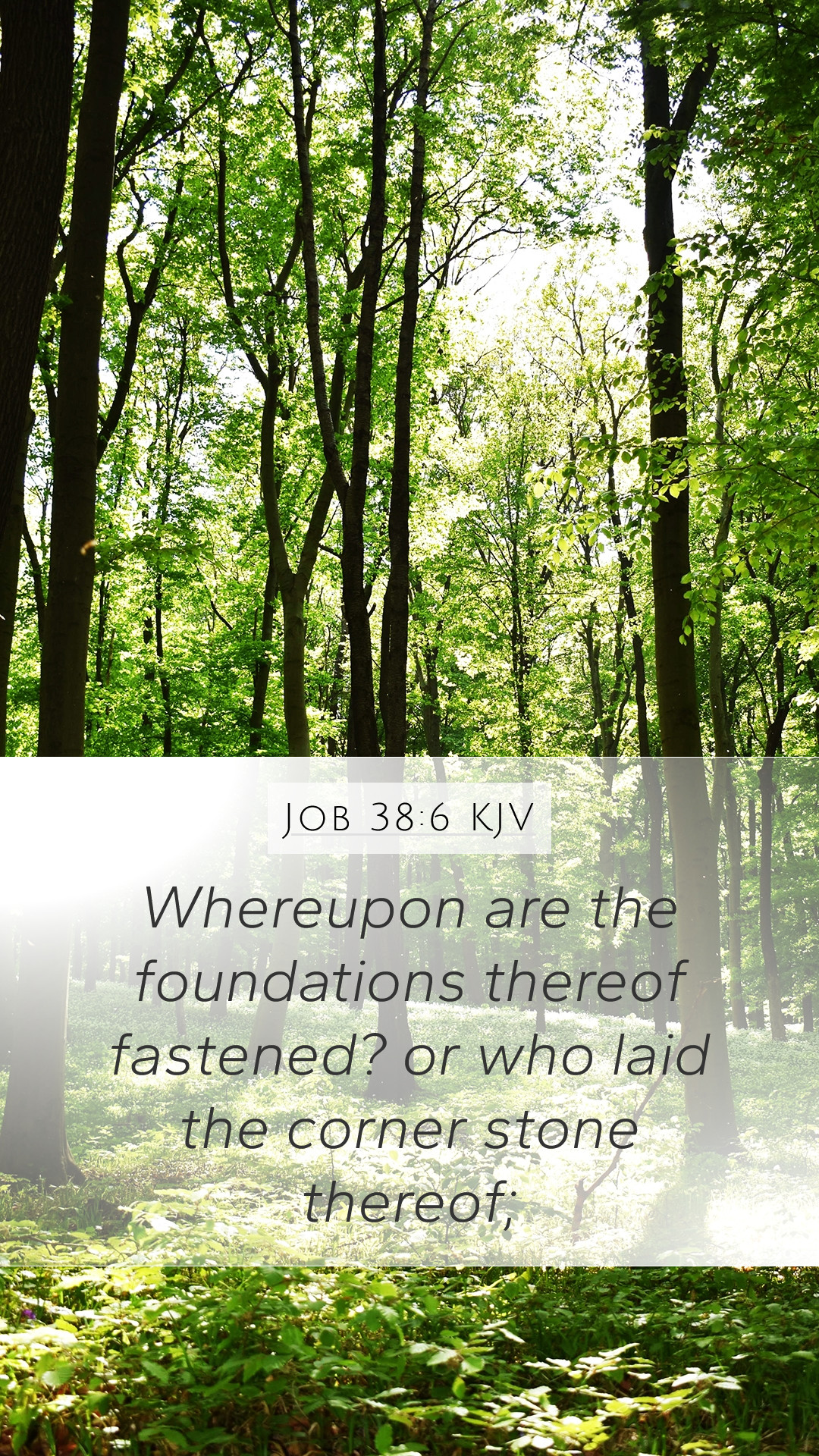Bible Verse Meaning: Job 38:6
Job 38:6 states, "Whereupon are the foundations thereof fastened? Or who laid the corner stone thereof?". This verse is a part of God’s powerful response to Job, where He challenges Job's understanding of creation and divine order.
Overview of Job 38
This chapter marks a significant turning point in the Book of Job, where God speaks from the whirlwind to answer Job's questions about suffering, justice, and the nature of God's governance in the world.
Commentary Insights
-
Matthew Henry:
Henry emphasizes that God's aim is to display His omnipotence and wisdom. In these verses, God draws attention to the creation of the world, likening creation to a building project where He is the master builder, and Job is completely unaware of the details of this divine undertaking.
-
Albert Barnes:
Barnes notes that the use of the terms "foundations" and "corner stone" imply the stability and purpose of creation. He highlights that God's questions are rhetorical, illustrating that Job cannot answer them because they pertain to God's eternal and divine wisdom, which Job has no capacity to fully understand.
-
Adam Clarke:
Clarke points out that the corner stone is crucial in construction, and its laying symbolizes the beginning of creation. He explains that God's challenging questions are intended to humble Job and to teach him about the greatness of divine providence.
Theological Significance
The verse underlines key themes in biblical theology such as:
- The Sovereignty of God: It reveals that God is the ultimate authority in creation, highlighting His control over the foundations of the earth.
- Human Limitation: By questioning Job’s ability to grasp these fundamental truths, it reveals the limitations of human wisdom compared to divine knowledge.
- The Mystery of Creation: The verse urges believers to acknowledge the mysteries of God's works that exceed human rationale and comprehension.
Applications of Job 38:6
In applying this verse to daily life, believers are encouraged to:
- Develop a sense of humility regarding personal understanding of life's challenges.
- Trust in God’s sovereignty even in situations that seem unjust or incomprehensible.
- Recognize that human perspectives are limited and that faith often must transcend human logic.
In-Depth Analysis
This verse serves as a reflection on the foundational truths of existence. In-depth analysis reveals the following:
- Historical Context: Understanding the context in which Job lived—a time when God’s existence was closely tied to the observable world—can aid in grasping the weight of God’s questions.
- The Nature of Questions: God's questions to Job serve not to accuse but to instruct, using the metaphor of foundational architecture as a way to communicate profound truths about His own nature.
- Job's Condition: Job’s suffering leads to questions about divine justice, and God’s response points to the times when suffering cannot be understood solely through human wisdom.
Cross References
This verse relates closely to several other scriptural passages that explore themes of creation and God's wisdom:
- Psalm 104:5 - "The LORD established the earth upon its foundations, so it will never move." - This passage echoes the concept of divine creation and stability.
- Proverbs 8:29 - "When he established the heavens, I was there, when he drew a circle on the face of the deep." - This verse emphasizes God's role in creation.
- Isaiah 48:13 - "Indeed, My hand laid the foundation of the earth, and My right hand spread out the heavens; When I call to them, they stand together." - This reinforces the power of God in creation.


